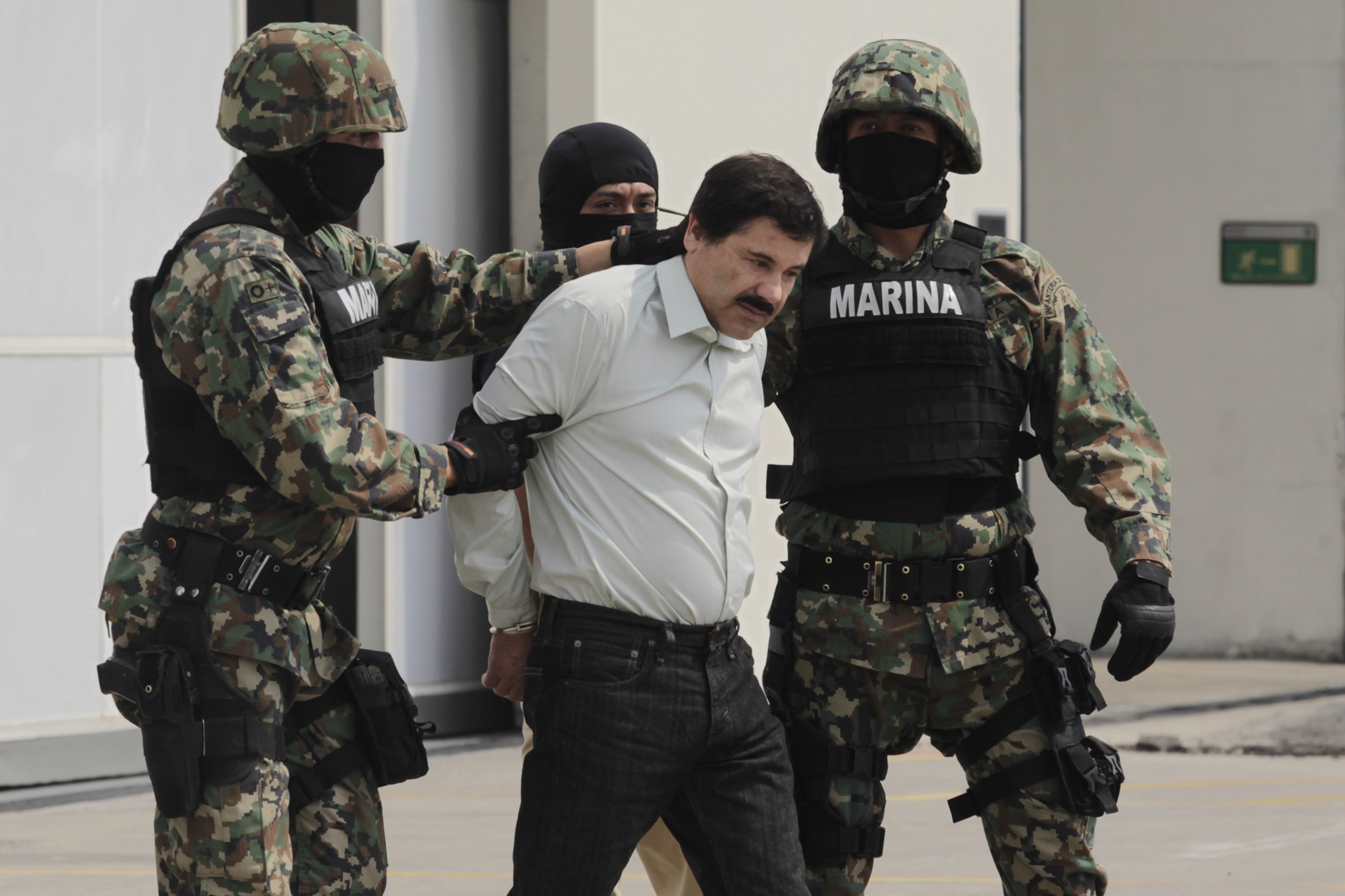
Former members of drug lord Joaquín "El Chapo" Guzmán's Sinaloa cartel testified during his trial that illicit substances were smuggled through legal checkpoints along the U.S.-Mexico border, as well as through an elaborate tunnel and sea routes.
During the current dispute over the government shutdown and a proposed border wall, Democrats have repeatedly argued that most illegal substances enter the country through legal checkpoints. But President Donald Trump claims the wall is essential to prevent illegal immigrants and narcotics from crossing the border and is demanding $5 billion in funding.
"If we build a powerful and fully designed see-through steel barrier on our southern border, the crime rate and drug problem in our country would be quickly and greatly reduced," Trump said on Saturday. "Some say it could be cut in half…. We can stop heroin."
But details revealed in the 10 weeks of testimony at Guzmán's trial in a federal court in Brooklyn, New York, suggest that Trump's proposed wall would actually do little to stop the flow of drugs crossing the border.
Those who have worked with Guzmán have testified that they often utilized legal checkpoints to smuggle narcotics across borders by hiding the substances in shipping containers, passenger cars with hidden compartments, trucks, tanker trains and even in cans of jalapeños, according to The New York Times.
Some witnesses claimed Guzmán sometimes infrequently smuggled drugs through sea routes. Jesús Zambada García, the kingpin's former logistics chief, testified that the crime syndicate also utilizes a tunnel below a ranch house in Mexico's Agua Prieta that was connected to a warehouse in Douglas, Arizona, located within walking distance from a U.S. Customs and Border Protection office.
Doris Meissner, a Migration Policy Institute employee who served as the commissioner of the U.S. Immigration and Naturalization Service between 1993 and 2000, told the Times that the details revealed in Guzmán's trial "is what front-line border workers observe throughout."
"The idea that people are walking drugs across the border as though they are illegal immigrants who would then be stopped by a wall across the border—that is not the pattern," she said.
Some supporters of the wall argue that although the wall won't stop all of the flow of drugs, it could help improve the border situation.
"One of the big problems is we have too many people standing on guard between and at points of entry and not enough people doing inspections, analysis and intelligence, so the wall will certainly channel the flow into areas you can manage, analyze and search more thoroughly," John P. Walters, former director of drug control policy for President George W. Bush, said, according to the Times.
"The wall itself does not stop all flow, but the wall becomes a way to stop all flow," he added.
Uncommon Knowledge
Newsweek is committed to challenging conventional wisdom and finding connections in the search for common ground.
Newsweek is committed to challenging conventional wisdom and finding connections in the search for common ground.
About the writer
To read how Newsweek uses AI as a newsroom tool, Click here.








